
The Zulu
South African Culture
The origin of the Zulu, probably the largest single population group in South Africa, lies in a small Nguni-speaking chiefdom that emerged near the White Umfolozi River in what is today known as KwaZulu-Natal during the 16th century.
Zulu men at King Shaka Day celebrations with the KwaZulu-Natal mountains in the background.
Shaka, who became the chief of the tiny Zulu group in 1818, laid the foundations of the Zulu nation and built the mightiest empire in southern Africa.
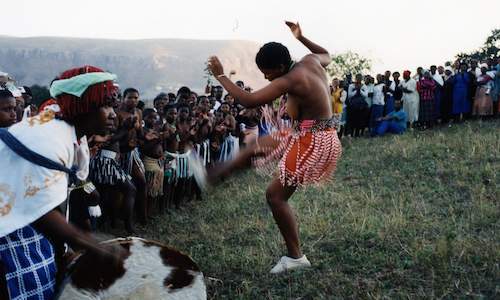
Music, song and dancing have traditionally played an important part in Zulu life, not only of the individual, but also of the community as a...
more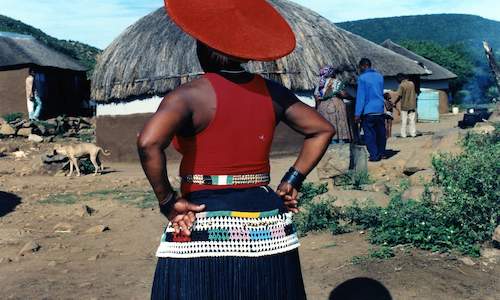
Thus Zulu children were exposed to nature at an early age, inculcating a deep, lasting understanding and empathy for the environment in whic...
more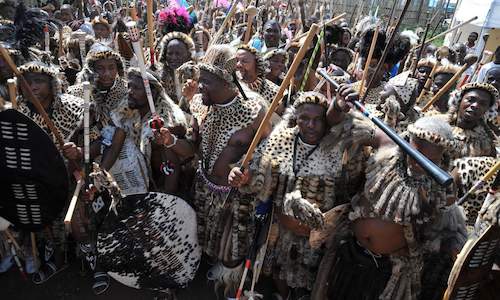
During the reign of Shaka and his successors, the growth and strength of the Zulu nation lay in its military organization and skills....
more
At the base of the structure were the individual households (imizi), which comprised the smallest political units in the government of the n...
more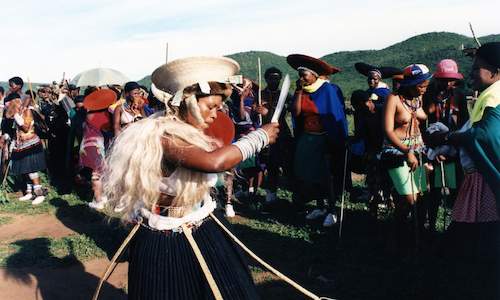
The Zulu believe that the isithunzi becomes the ancestral spirit after death, but only after the ukubuyisa ceremony has been performed, duri...
more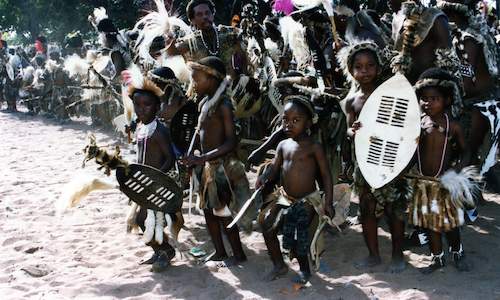
Around the year 1550 Malandela, a chief with a small following, settled at the foot of Amandawe Hill on the southern banks of the Umhlatuze ...
more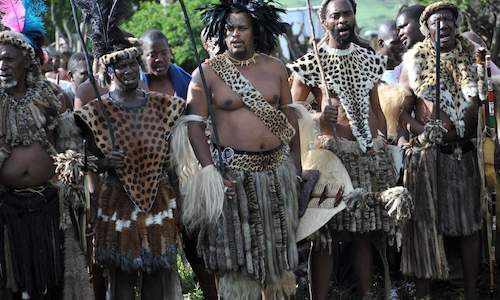
In 1787, Senzangakhona, the young chief of the Zulu (which derived its name from one of Malandela's quarrelsome sons), fathered a son out of...
more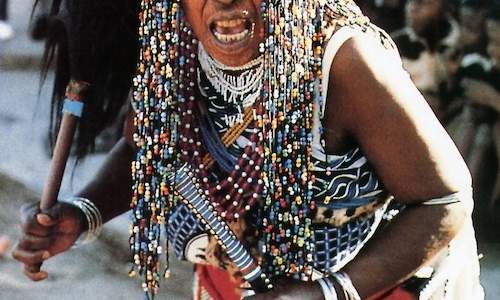
Traditional medicines in Zulu society have their origins in the mists of antiquity; and their use and application today have changed little ...
more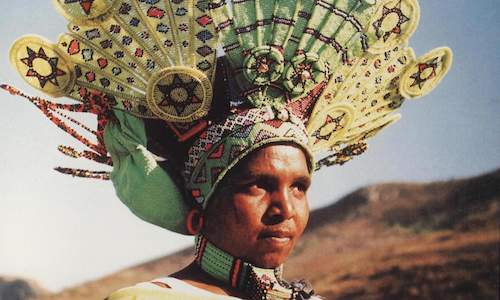
Childbirth among the Zulu has always been the concern of women alone, and no men are allowed to be present at birth....
more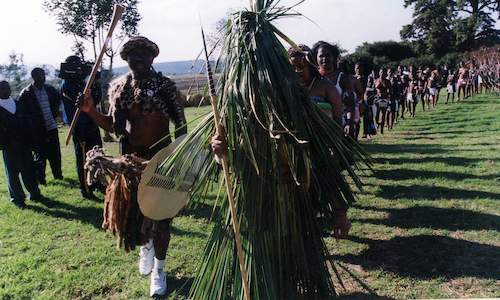
Distinction between members of the umuzi was reinforced by the fact that every individual passed through a number of well-marked stages, non...
more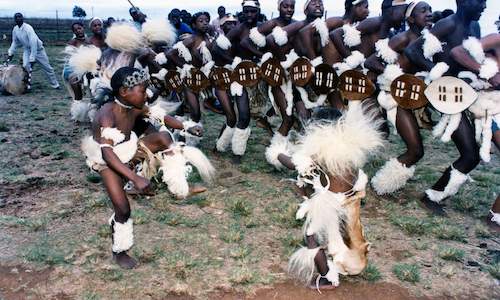
The architecture and layout of the umuzi were the same throughout Zulu society and reflected the status of the different wives....
more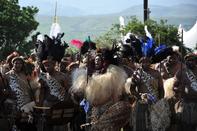
 Music, song and dancing have traditionally played an important part in Zulu life, not only of the individual, but also of the community as a...
Music, song and dancing have traditionally played an important part in Zulu life, not only of the individual, but also of the community as a... Thus Zulu children were exposed to nature at an early age, inculcating a deep, lasting understanding and empathy for the environment in whic...
Thus Zulu children were exposed to nature at an early age, inculcating a deep, lasting understanding and empathy for the environment in whic... During the reign of Shaka and his successors, the growth and strength of the Zulu nation lay in its military organization and skills....
During the reign of Shaka and his successors, the growth and strength of the Zulu nation lay in its military organization and skills.... At the base of the structure were the individual households (imizi), which comprised the smallest political units in the government of the n...
At the base of the structure were the individual households (imizi), which comprised the smallest political units in the government of the n... The Zulu believe that the isithunzi becomes the ancestral spirit after death, but only after the ukubuyisa ceremony has been performed, duri...
The Zulu believe that the isithunzi becomes the ancestral spirit after death, but only after the ukubuyisa ceremony has been performed, duri... Around the year 1550 Malandela, a chief with a small following, settled at the foot of Amandawe Hill on the southern banks of the Umhlatuze ...
Around the year 1550 Malandela, a chief with a small following, settled at the foot of Amandawe Hill on the southern banks of the Umhlatuze ... In 1787, Senzangakhona, the young chief of the Zulu (which derived its name from one of Malandela's quarrelsome sons), fathered a son out of...
In 1787, Senzangakhona, the young chief of the Zulu (which derived its name from one of Malandela's quarrelsome sons), fathered a son out of... Traditional medicines in Zulu society have their origins in the mists of antiquity; and their use and application today have changed little ...
Traditional medicines in Zulu society have their origins in the mists of antiquity; and their use and application today have changed little ... Childbirth among the Zulu has always been the concern of women alone, and no men are allowed to be present at birth....
Childbirth among the Zulu has always been the concern of women alone, and no men are allowed to be present at birth.... Distinction between members of the umuzi was reinforced by the fact that every individual passed through a number of well-marked stages, non...
Distinction between members of the umuzi was reinforced by the fact that every individual passed through a number of well-marked stages, non... The architecture and layout of the umuzi were the same throughout Zulu society and reflected the status of the different wives....
The architecture and layout of the umuzi were the same throughout Zulu society and reflected the status of the different wives....